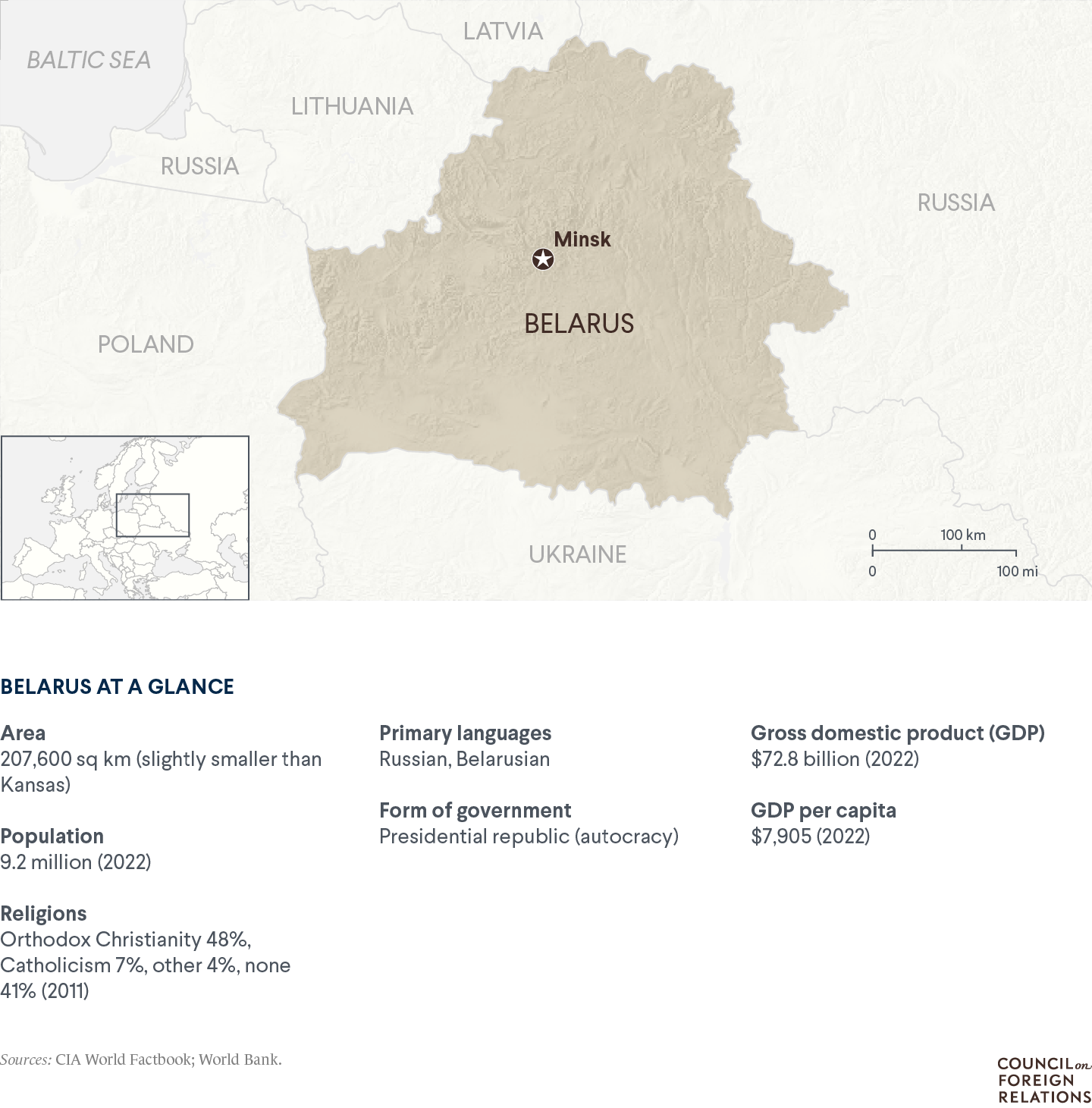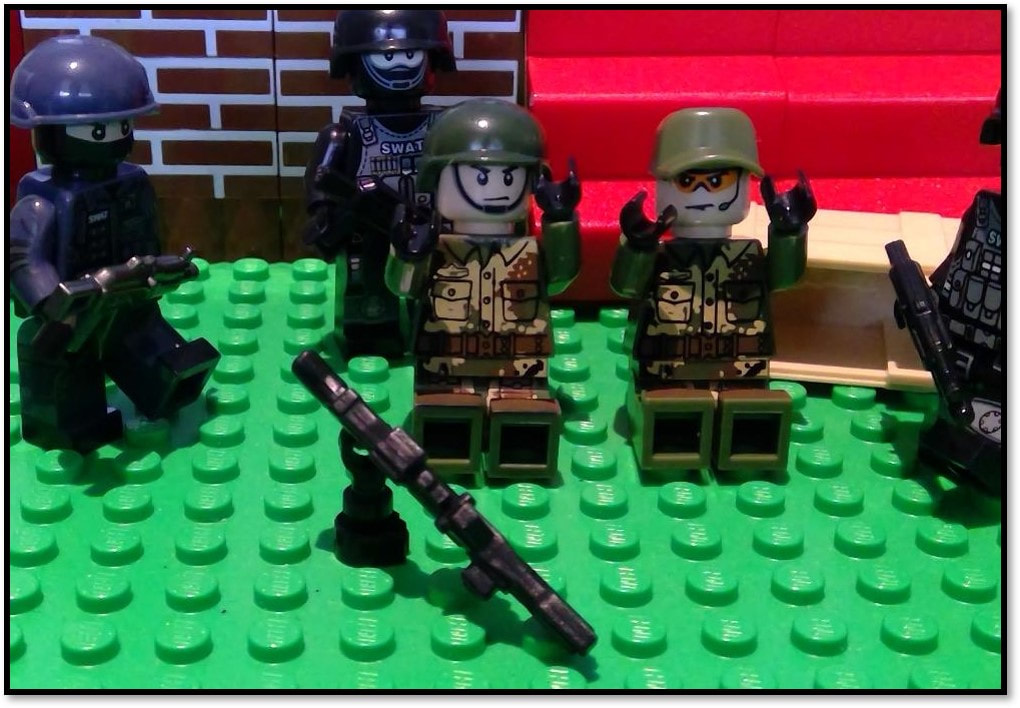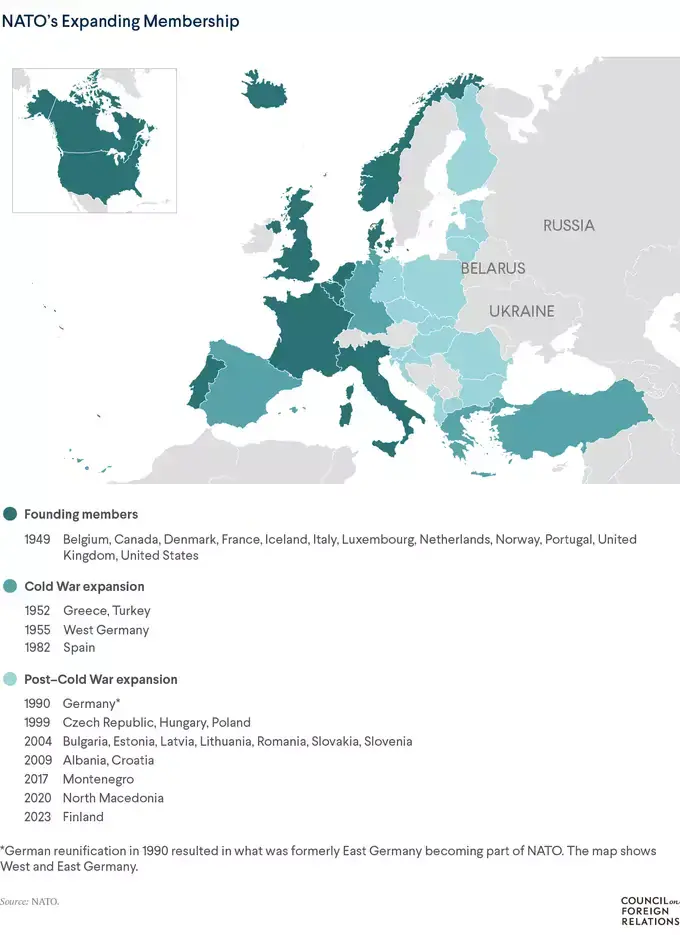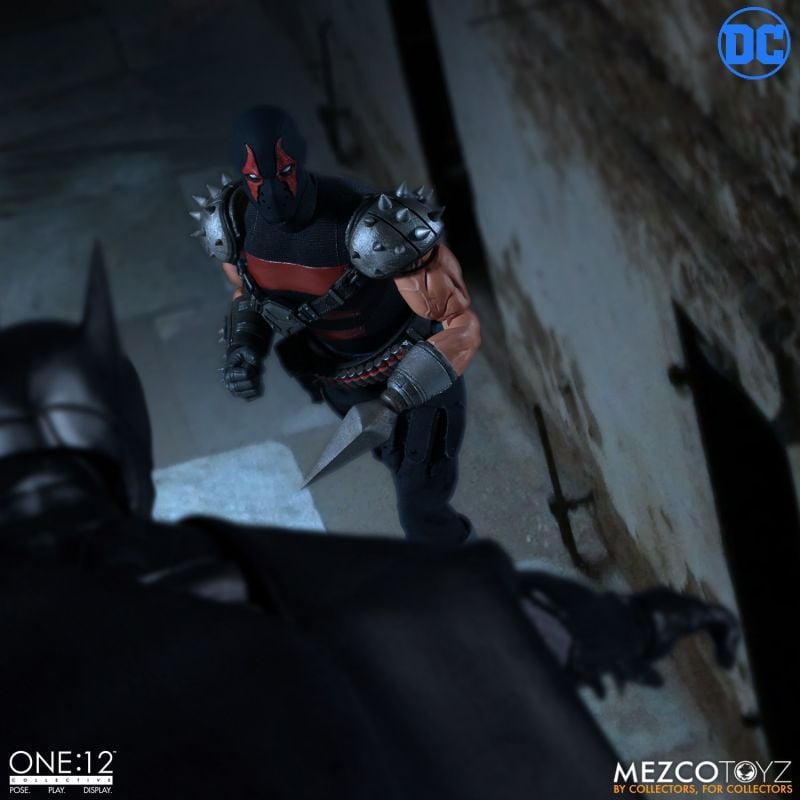- Joined
- Jan 17, 2010
- Messages
- 4,532
- Reaction score
- 5,492
Russia has renewed its long-stalled push for unification with Belarus, using the country as a launchpad for its war against Ukraine and a hardening bulwark against NATO rivals to the west.
WRITTEN BY
Jonathan Masters
Summary

Introduction
Belarus’s complicity in Russia’s ongoing invasion of Ukraine has tightened the bonds between Minsk and Moscow, and brought their lopsided alliance one step closer to full-fledged integration. President Aleksandr Lukashenko, Belarus’s longtime post-communist leader, has turned the country into what rights watchdog Freedom House terms a “consolidated authoritarian regime” and one of the world’s least democratic states. His growing alignment with Russian President Vladimir Putin bodes ill for the democratic and economic aspirations of the Belarusian people and raises grave new security concerns in Europe.
What’s the history of the Belarus-Russia relationship?
Like with many smaller European states, the land comprising modern-day Belarus has traded hands many times over the centuries, battled over by larger powers in the region, including Germany, Lithuania, Poland, Russia, and their antecedents. Belarus largely took its current shape as the Byelorussian Soviet Socialist Republic, which composed part of the Soviet Union from 1920 to 1991.

Belarus’s close—but at times, quarrelsome—relationship with Russia is largely a legacy of their shared eastern Slavic ancestry and Soviet past, during which power was heavily concentrated in Moscow. Belarus hosted Soviet nuclear weapons and military bases during the Cold War, and the leaders of Russia and Belarus, along with those of Ukraine, played prominent roles in bringing about the collapse of the Soviet Union in 1991.
In the tumultuous years that followed, Lukashenko and then Russian President Boris Yeltsin signed a series of agreements and treaties intended to integrate the two states economically, politically, and militarily. The process culminated in a 1999 treaty creating the so-called Union State of Belarus and Russia, although historians say the effort was mostly symbolic and that it became a source of bilateral tension. The governments collaborated most on integration in the military sphere while implementing little in the way of politics and economics.

Belarus also joined Russia’s multilateral defense and economic projects: the Collective Security Treaty Organization, created in 1993, and the Eurasian Economic Community, formed in 2000. Moscow forged the organizations to consolidate its influence in the post-Soviet sphere and serve, at least nominally, as counterweights to the North Atlantic Treaty Organization (NATO) and the European Union (EU).
But the two countries have also feuded over the years, particularly as Putin grew frustrated with Lukashenko’s efforts to preserve Belarus’s sovereignty and his perceived foot-dragging on integration. Strains have repeatedly surfaced over Belarus’s economic dependence on subsidized Russian energy, and over other matters, including Lukashenko’s refusal to recognize the independence of Abkhazia and South Ossetia, two Russia-controlled separatist regions of Georgia, and of Crimea, a Russia-occupied region of Ukraine. He finally recognized the latter in late 2021.

What role has Belarus played in the Russia-Ukraine war?
The Lukashenko regime has played a central role in Russia’s war against Ukraine. In late 2021 and early 2022, Belarus gave Russian forces a significant strategic advantage by allowing them to stage their assault on Kyiv from Belarus, which lies just eighty kilometers (fifty miles) to the north of the Ukrainian capital, in their ill-fated attempt to rapidly decapitate the Ukrainian government. An attack on Kyiv from Russia’s border with Ukraine had to cover at least twice the distance. The shorter route from Belarus also allowed part of the Russian offensive to strike Kyiv from the west, without having to cross the Dnipro River (referred to in Russian as the Dnieper River), while another prong of the invasion attacked from the east. Ukraine was able to repel the Russians from the northern part of the country despite these advantages.
In recent months, Belarus has also become a base and training ground for the Wagner Group, a Russian paramilitary organization, and reportedly a host to Russian tactical nuclear weapons. These destabilizing developments have raised tensions with neighboring Poland and the Baltic states, all NATO members and strong supporters of Ukraine.

In July 2023, Lukashenko looked to play a role in persuading Putin to allow the mutinous Wagner chief Yevgeny Prigozhin to seek refuge in Belarus, although some analysts question the value of his contributions. “Even in his fleeting moment of glory, Mr. Lukashenko cuts a pathetic figure as a Russian pawn,” writes CFR Distinguished Fellow Thomas Graham. “Perhaps the one worthy service he has performed for his country over the years is to briefly show how Belarus could position itself as a respectable player in European affairs.”
Why did Lukashenko intensify ties with Russia in 2020?

Lukashenko initially attempted to maintain Belarus’s independence in the years following Moscow’s illegal annexation of Crimea in 2014. He held off on recognizing it as a Russian territory and instead tried to position Belarus as neutral ground for diplomacy between Russia, Ukraine, and west European powers. His attempts worked, at least temporarily, as Minsk became the primary venue for multiyear discussions between the parties. However, the so-called Minsk agreements they produced were never implemented.
Lukashenko was eventually forced to drop his diplomatic posturing and embrace Russia amid an extraordinary uprising in 2020 that threatened to unseat him. Deep cracks emerged in his regime after he rigged the presidential election that year and ordered a crackdown on the nationwide anti-government protests that followed the vote. With domestic pressure and international opprobrium mounting, Lukashenko turned to Moscow for political, economic, and security assurances. Putin reportedly set up a special Russian police force to come to Lukashenko’s aid if asked.
Experts say the crisis marked a major turning point in the relationship. In the months leading up to his embrace of Putin in 2020, Lukashenko continued to appear as a highly reluctant Russian ally, accusing Moscow of “blackmail,” calling talk of unification “exceedingly stupid,” and hosting high-level talks with U.S. National Security Advisor John Bolton. Just weeks ahead of the election, he alleged that Putin had sent mercenaries into Belarus to sow unrest. But amid the postelection protests, Lukashenko became completely reliant on Russian support and started talking more about the two countries’ common fatherland. “This is music to the Russians’ ears,” said CFR Senior Fellow Stephen Sestanovich in 2020. “Now the Russians see in [Lukashenko’s] vulnerability an opportunity to make [the Union State] more of a reality, to absorb the institutions of the Belarus state into their own.”
WRITTEN BY
Jonathan Masters
Summary
- Belarus has provided ally Russia with a major strategic advantage in that country’s war against Ukraine, although it has not been drawn into the fighting directly thus far.
- Belarus’s involvement in the war has significantly raised tensions with NATO allies to the west, including Latvia, Lithuania, and Poland.
- In recent years, Russian President Vladimir Putin has seized on the weaknesses of President Aleksandr Lukashenko, Belarus’s longtime authoritarian leader, to hasten the two countries’ integration.

Introduction
Belarus’s complicity in Russia’s ongoing invasion of Ukraine has tightened the bonds between Minsk and Moscow, and brought their lopsided alliance one step closer to full-fledged integration. President Aleksandr Lukashenko, Belarus’s longtime post-communist leader, has turned the country into what rights watchdog Freedom House terms a “consolidated authoritarian regime” and one of the world’s least democratic states. His growing alignment with Russian President Vladimir Putin bodes ill for the democratic and economic aspirations of the Belarusian people and raises grave new security concerns in Europe.
What’s the history of the Belarus-Russia relationship?
Like with many smaller European states, the land comprising modern-day Belarus has traded hands many times over the centuries, battled over by larger powers in the region, including Germany, Lithuania, Poland, Russia, and their antecedents. Belarus largely took its current shape as the Byelorussian Soviet Socialist Republic, which composed part of the Soviet Union from 1920 to 1991.

Belarus’s close—but at times, quarrelsome—relationship with Russia is largely a legacy of their shared eastern Slavic ancestry and Soviet past, during which power was heavily concentrated in Moscow. Belarus hosted Soviet nuclear weapons and military bases during the Cold War, and the leaders of Russia and Belarus, along with those of Ukraine, played prominent roles in bringing about the collapse of the Soviet Union in 1991.
In the tumultuous years that followed, Lukashenko and then Russian President Boris Yeltsin signed a series of agreements and treaties intended to integrate the two states economically, politically, and militarily. The process culminated in a 1999 treaty creating the so-called Union State of Belarus and Russia, although historians say the effort was mostly symbolic and that it became a source of bilateral tension. The governments collaborated most on integration in the military sphere while implementing little in the way of politics and economics.

Belarus also joined Russia’s multilateral defense and economic projects: the Collective Security Treaty Organization, created in 1993, and the Eurasian Economic Community, formed in 2000. Moscow forged the organizations to consolidate its influence in the post-Soviet sphere and serve, at least nominally, as counterweights to the North Atlantic Treaty Organization (NATO) and the European Union (EU).
But the two countries have also feuded over the years, particularly as Putin grew frustrated with Lukashenko’s efforts to preserve Belarus’s sovereignty and his perceived foot-dragging on integration. Strains have repeatedly surfaced over Belarus’s economic dependence on subsidized Russian energy, and over other matters, including Lukashenko’s refusal to recognize the independence of Abkhazia and South Ossetia, two Russia-controlled separatist regions of Georgia, and of Crimea, a Russia-occupied region of Ukraine. He finally recognized the latter in late 2021.

What role has Belarus played in the Russia-Ukraine war?
The Lukashenko regime has played a central role in Russia’s war against Ukraine. In late 2021 and early 2022, Belarus gave Russian forces a significant strategic advantage by allowing them to stage their assault on Kyiv from Belarus, which lies just eighty kilometers (fifty miles) to the north of the Ukrainian capital, in their ill-fated attempt to rapidly decapitate the Ukrainian government. An attack on Kyiv from Russia’s border with Ukraine had to cover at least twice the distance. The shorter route from Belarus also allowed part of the Russian offensive to strike Kyiv from the west, without having to cross the Dnipro River (referred to in Russian as the Dnieper River), while another prong of the invasion attacked from the east. Ukraine was able to repel the Russians from the northern part of the country despite these advantages.
In recent months, Belarus has also become a base and training ground for the Wagner Group, a Russian paramilitary organization, and reportedly a host to Russian tactical nuclear weapons. These destabilizing developments have raised tensions with neighboring Poland and the Baltic states, all NATO members and strong supporters of Ukraine.

In July 2023, Lukashenko looked to play a role in persuading Putin to allow the mutinous Wagner chief Yevgeny Prigozhin to seek refuge in Belarus, although some analysts question the value of his contributions. “Even in his fleeting moment of glory, Mr. Lukashenko cuts a pathetic figure as a Russian pawn,” writes CFR Distinguished Fellow Thomas Graham. “Perhaps the one worthy service he has performed for his country over the years is to briefly show how Belarus could position itself as a respectable player in European affairs.”
Why did Lukashenko intensify ties with Russia in 2020?

Lukashenko initially attempted to maintain Belarus’s independence in the years following Moscow’s illegal annexation of Crimea in 2014. He held off on recognizing it as a Russian territory and instead tried to position Belarus as neutral ground for diplomacy between Russia, Ukraine, and west European powers. His attempts worked, at least temporarily, as Minsk became the primary venue for multiyear discussions between the parties. However, the so-called Minsk agreements they produced were never implemented.
Lukashenko was eventually forced to drop his diplomatic posturing and embrace Russia amid an extraordinary uprising in 2020 that threatened to unseat him. Deep cracks emerged in his regime after he rigged the presidential election that year and ordered a crackdown on the nationwide anti-government protests that followed the vote. With domestic pressure and international opprobrium mounting, Lukashenko turned to Moscow for political, economic, and security assurances. Putin reportedly set up a special Russian police force to come to Lukashenko’s aid if asked.
Experts say the crisis marked a major turning point in the relationship. In the months leading up to his embrace of Putin in 2020, Lukashenko continued to appear as a highly reluctant Russian ally, accusing Moscow of “blackmail,” calling talk of unification “exceedingly stupid,” and hosting high-level talks with U.S. National Security Advisor John Bolton. Just weeks ahead of the election, he alleged that Putin had sent mercenaries into Belarus to sow unrest. But amid the postelection protests, Lukashenko became completely reliant on Russian support and started talking more about the two countries’ common fatherland. “This is music to the Russians’ ears,” said CFR Senior Fellow Stephen Sestanovich in 2020. “Now the Russians see in [Lukashenko’s] vulnerability an opportunity to make [the Union State] more of a reality, to absorb the institutions of the Belarus state into their own.”




